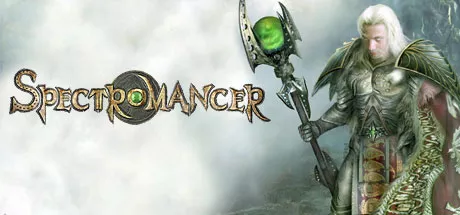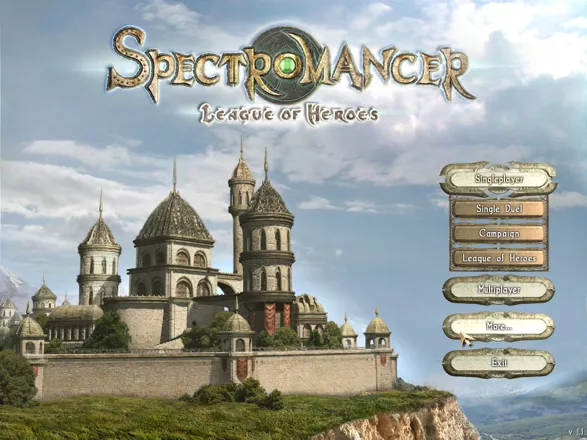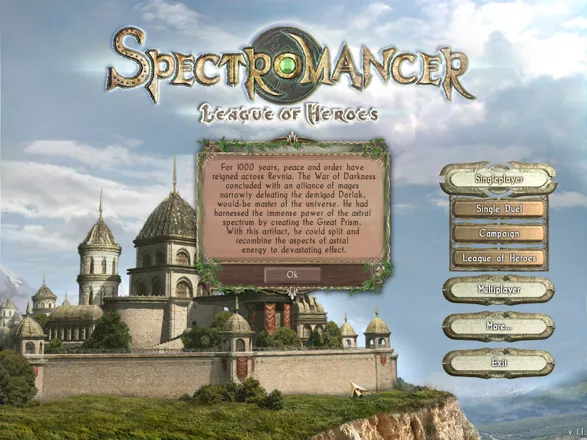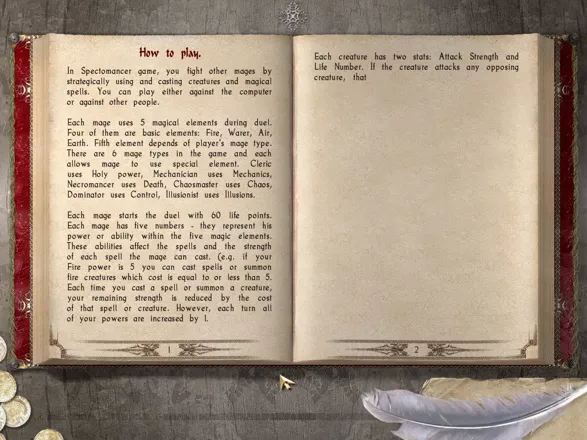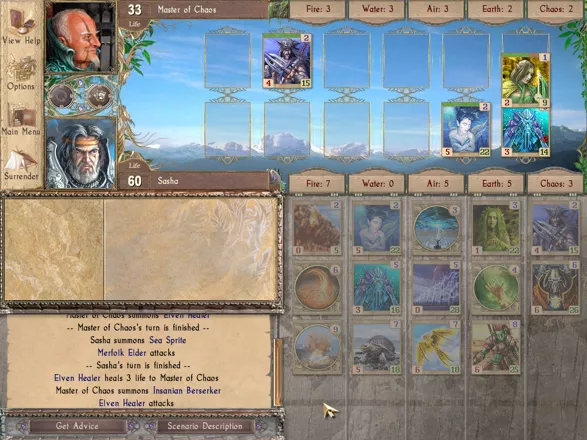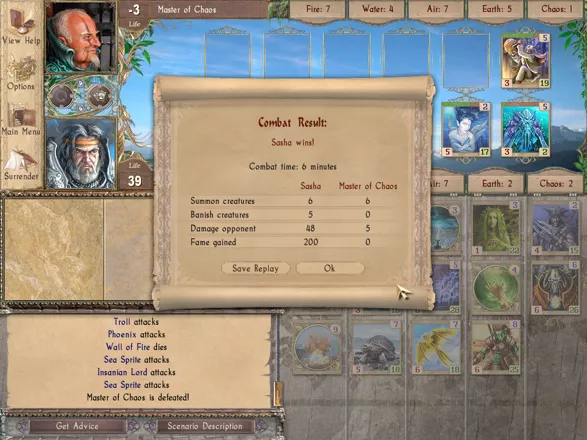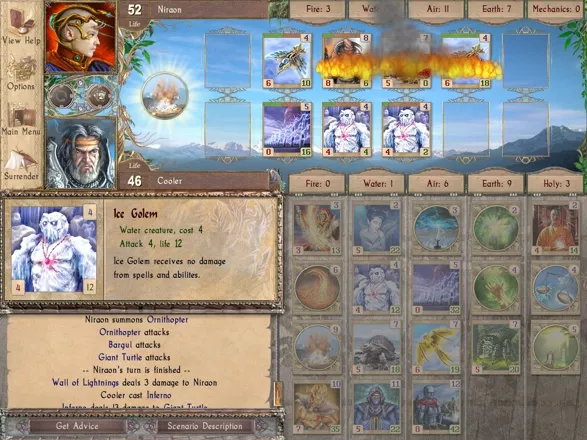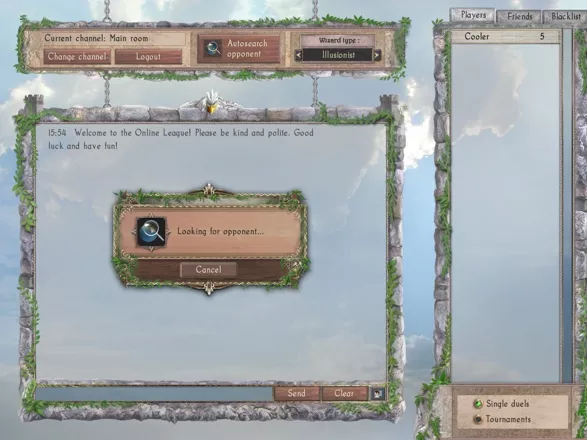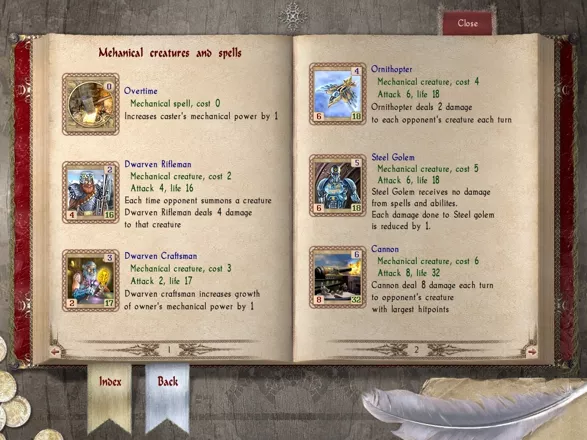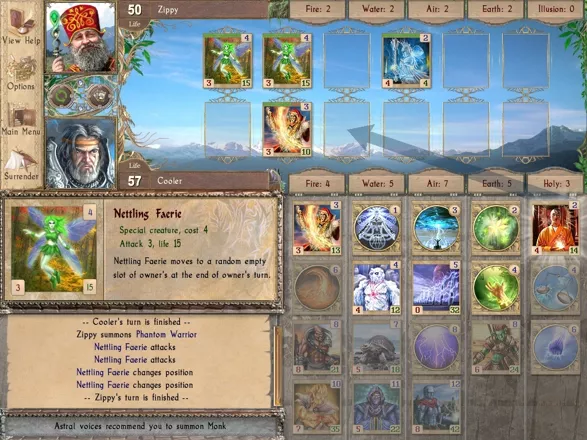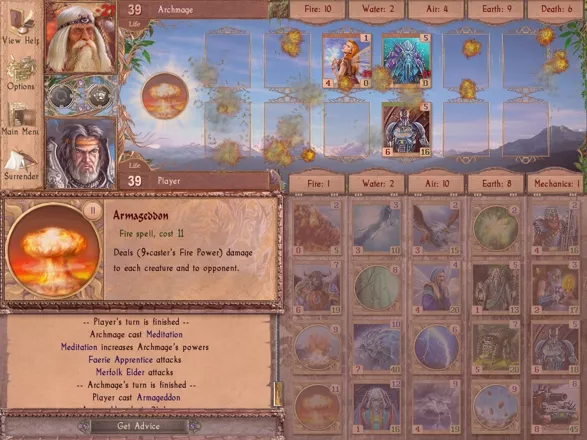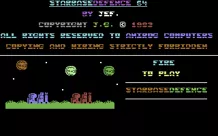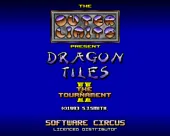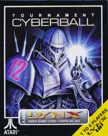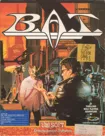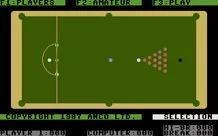Spectromancer
Description
Spectromancer is a card collection game similar to Magic the Gathering. Players use cards to combat each other. Winning duels grants players new cards.
Each player plays as a mage. The game features six different mage classes (Cleric, Mechanician, Necromancer, Chaosmaster, Dominator and Illusionist). Different cards represent different spells and summons the player cast. The game is played in turns and each turn the players can place new cards on the virtual table and summoned creatures will attack enemy creatures. Spells can also be cast for additional damage. Different types of units do different types of damage (fire, water, air, earth, plus one class dependent type). Different creatures also have different resistances against these types of damage.
Players can play against each other over the Internet or against an AI computer player.
Groups +
Screenshots
Promos
Reviews
Critics
Average score: 78% (based on 5 ratings)
Players
Average score: 3.7 out of 5 (based on 4 ratings with 1 reviews)
Magic: The Gathering for casual gamers
The Good
The game is extremely simple to play, and could be very friendly for casual gamers. The gameplay is similar to Magic: The Gathering in that you duel your opponents by playing various cards from your deck, with each card requiring a certain number of its own mana type. Just like in MTG, you can play creature cards (with their own attack and health attributes) to empty slots on the battlefield that attack your opponent (if they're unblocked) or block and attack an opponent creature if it stands in the opposite slot. Creatures come with special abilities of various strength (depending on the level of the creature), making certain creatures more valuable than others. Instead of a creature you can use a spell card that usually causes damage to opponent and/or their creatures or heal yours.
The goal of the game is very simple - bring your opponents health to zero before he does the same to you.
Unlike MTG, the gameplay has been simplified significantly: You won't construct your deck, you're only able to play either one creature or one spell each turn, yours and your opponent's mana increases each turn passively (without the need to play "lands" like in MTG), and all creatures attack and defend each turn, without the need to assign attackers or keep defenders in a reserve.
The game comes with a campaign mode where you fight your way through a series of duels with special, preset rules. In early duels your opponent will start with a handicap (like being unable to play cards for the first three turn, or you beginning with a card already in play), while later in the game your opponent will have a similar starting advantage. Usually you will be able to pick one out of two-three opponents with different decks, rules, and rewards for victory. These rewards range from new cards to your deck to increase of your base mana or health to upgrades for your pet (a creature card that, once earned, will be in play at the start of every duel). Since your enemies have different strengths and rewards, you may prefer to fight your enemies in a different order depending on your chosen deck. The campaign has four difficulty levels which can be changed at any moment and affect how much initial mana your opponents have and how well they play. The AI is good enough to make some fights difficult even on the normal setting.
Apart from campaign mode you also have a simple duel mode against computer opponents, a tournament mode and multiplayer. All fights take no more than five minutes and make for a good quick fun.
Lastly, the developers of the game have released two mini-expansions (basically updates that add some features and fix bugs, but not add anything to the campaign) that added new mage types and game modes (one of which is deck customization which is sadly unusable for campaigns and has a separate mode).
The Bad
Simplifying things has the unfortunate effect of dumbing them down too much. The uncustamizable, but randomly selected deck (you have a chance to start your deck with some of your cards but not others which are decided randomly) takes away any hint of strategy from the game and can turn any into duel a coin throw - you either get good cards that enhance your strengths and reduce your weaknesses or you don't, and if you don't you'll lose.
This is particularly problematic in campaign duels against very customized opponents. If a duel makes it very difficult to play high level cards (by starting a duel with a damper that doubles all card costs), it will eventually boil down to who has the best low-costing creatures. If your deck doesn't come with good low level cards then there is no chance for you to win. Same thing for duels which punish creature use or magic use - you either start with good magic or creatures in your deck to offset the handicap, or you might as well surrender.
Same thing with other random effects in the game: Mana is set to a certain level at the beginning of the duel, but is somewhat randomly distributed across the five magic types you have. Thus if you get high mana in a field where you also got a good card in deck, you can quickly save up for it and win easily. Naturally, your opponent may also get lucky and crush you in a few turns.
This game has a high variety of mage types which translates to what kind of additional, fifth, mana type and cards you'll get in your deck. This fifth element has generally stronger and cheaper cards to offset the other four mana types which are the same for all players. Sadly, the mage types aren't very balanced and some are a liability in certain campaign duels, thus limiting their use to multiplayer. For instance, the Mad Hermit type is very dependent on beast summonings, but the game only has six creature slots which limits the Mad Hermit's power against some better balanced mage type, and makes him more reliant on spells from the four generic spheres (that you may or may not get in your deck). Also, despite reduced cost and greater power, the fifth element still doesn't do very much to add variety. The other generic elements are good enough to make similar tactics work with almost any mage type, and can't compere to the vast number of strategies that MTG allowed.
The generic spheres of fire, water, air and earth have a dozen cards each (2-4 spell cards and the rest creatures or walls), from which only four will chosen in each duel (the process is not entirely random as the game will pick between cards of similar cost, giving you a mix of powers). The additional elements have only eight cards (again, only four will be chosen) with much more variation, depending on your mage type. However, this is a very poor pool of cards and since not all of them are equally useful, you will be reduced to only a handful of simple tactics.
All in all, you will enjoy the game for ten hours or so, but after that it just get repetitive unless you play only a few duels a day. The campaign will last for only four-five hours and it will always be the same which limits replayability. This means the game rest mostly on multiplayer.
The Bottom Line
A good way to introduce someone to trading/collectible card games and may keep you interested for a short while.
Windows · by Alex Z (1856) · 2011
Discussion
| Subject | By | Date |
|---|---|---|
| expansions/re-releases | Rola (8483) | Aug 29, 2013 |
Trivia
Origin
After developer Alexey Stankevich had created the obvious Magic the Gathering inspired Astral Tournament and Astral Masters, Richard Garfield and Skaff Elias (designers from Magic the Gathering were so impressed that they offered to co-develop Astral Tournament II. The title was later changed to Spectromancer.
Expansions
The expansions add new mage classes with their respective card sets. For mobile platforms they're available as in-app purchases, while Windows users can upgrade for free - web browser edition was also updated to the latest version. * League of Heroes * Truth and Beauty * Gathering of Power
Analytics
Upgrade to MobyPro to view research rankings!
Related Sites +
-
Official website
Downloads, players' ranking and forum
Identifiers +
Contribute
Are you familiar with this game? Help document and preserve this entry in video game history! If your contribution is approved, you will earn points and be credited as a contributor.
Contributors to this Entry
Game added by vedder.
Browser added by Rola. iPad, iPhone added by Kabushi.
Additional contributors: Rola.
Game added June 27, 2010. Last modified July 21, 2023.
